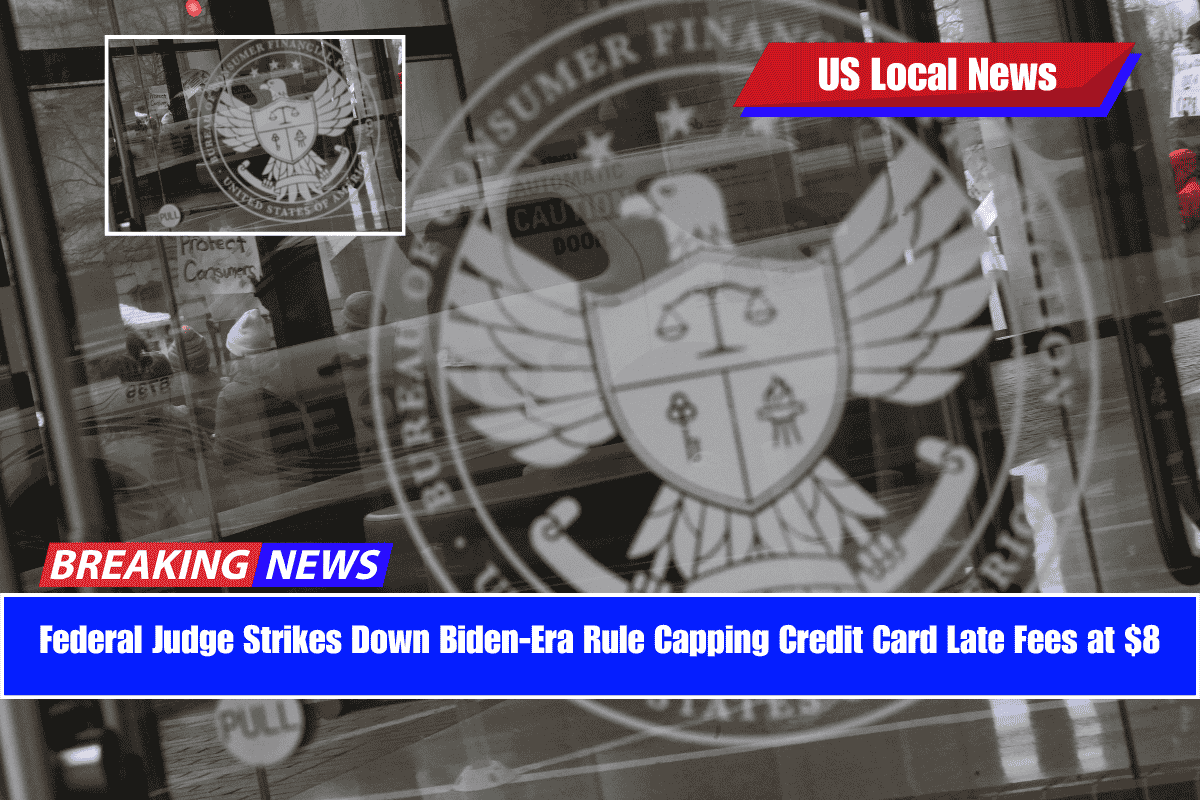A federal judge on Tuesday struck down a major Consumer Financial Protection Bureau (CFPB) rule that would have capped credit card late fees at $8, marking another significant rollback of Biden-era consumer protection policies under the Trump administration.
U.S. District Judge Mark Pittman, a Trump appointee, ruled that the CFPB’s 2024 rule violated the Credit Card Accountability and Disclosure Act of 2009, agreeing with both the agency and a coalition of six powerful business and banking groups, including the U.S. Chamber of Commerce and the American Bankers Association.
The judge granted a joint request to permanently void the rule, which the groups argued exceeded the CFPB’s authority and would have unfairly shifted costs to consumers who pay their bills on time.
What the Rule Aimed to Do
The CFPB’s now-defunct rule was part of President Joe Biden’s crackdown on so-called “junk fees”—extra costs in consumer transactions that regulators say are excessive or hidden.
The late fee rule specifically sought to:
- Cap credit card late fees at $8 for major issuers (those with over 1 million open accounts)
- Require issuers to prove that higher fees were necessary to cover actual collection costs
- Reduce the average late fee from about $32
CFPB Director Rohit Chopra had championed the measure as a pro-consumer reform, arguing it would save Americans billions of dollars annually in avoidable charges.
Why the Rule Was Struck Down
Judge Pittman agreed with the business coalition that the rule conflicted with congressional intent under the 2009 Credit CARD Act, which requires that late fees be “reasonable and proportional to the violation.”
In a March 2024 lawsuit, the business groups said the $8 cap was arbitrary and failed to account for real costs incurred by credit card issuers in managing delinquent payments. They also argued that deterring late payments requires meaningful penalties.
Critics further warned that the rule would burden responsible consumers by encouraging issuers to increase interest rates or other fees to offset losses from the cap.
“This is a win for consumers and common sense,” the groups said in a joint statement Tuesday, praising the court’s decision.
A Broader Trend: Reversing Biden Policies
This decision reflects a broader push by the Trump administration to roll back Biden-era regulatory efforts viewed as burdensome to business. The CFPB has been a frequent target, with moves underway to scale back its authority and limit its budget.
Just last week, a federal appeals court in Washington, D.C. ruled that while the Trump administration can reduce the CFPB’s scope, it cannot dismantle it completely or obstruct its core legal duties.
Still, the Biden administration’s momentum on financial consumer protection has slowed as courts and agency leadership change direction under Trump’s watch.
What’s Next for Consumers?
Without the rule in place, credit card companies are once again free to charge late fees above $8, as long as they comply with broader requirements that fees be reasonable and proportional.
Consumers who frequently pay late may continue to face fees as high as $30 to $40, depending on the issuer. Meanwhile, watchdog groups are expressing concern that the rollback signals a weaker stance on financial fairness and transparency going forward.











Leave a Reply